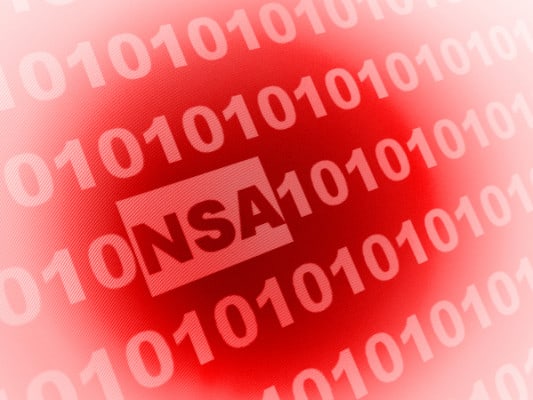NSA Says it Will Delete Bulk Surveillance Records in November
The National Security Agency (NSA) has said their legal authority on Section 215 of the bulk surveillance bill ends on November 29, and analysts will no longer have access to the phone records obtained and stored by the government.
Nearly three months ago, in May, the Court of Appeals ruled the bulk collection of surveillance data from both the NSA and FBI was not authorized by the Patriot act, the legal jurisdiction which they were believed to be operating in since 2001. Section 215 of the act gave legal authority for the agencies to collect metadata from mobile phone carriers.
The collection method of the NSA’s spying program was first revealed in in late 2013 when NSA whistleblower Edward Snowden leaked a trove of confidential files to journalists, naming and proving the NSA had collection models actively in place.
Metadada refers to the information retained from phone calls, such as the number dialed, location of the call, call duration among other key pieces of information. The only information not stored in metadata collection is the actual phone call contents, meaning the NSA claims to not have millions of recordings of Americans phone calls.
“The district court held that § 215 of the PATRIOT Act impliedly precludes judicial review; that plaintiffs‐ appellants’ statutory claims regarding the scope of § 215 would in any event fail on the merits; and that § 215 does not violate the Fourth or First Amendments to the United States Constitution. We disagree in part, and hold that § 215 and the statutory scheme to which it relates do not preclude judicial review, and that the bulk telephone metadata program is not authorized by § 215,” the United States Court of Appeals for the Second District handed down in a decision (PDF).
Following the NSA being forced to shut down their metadata phone call collection program, on June 1, Section 215 officially expired and lawmakers chose not to renew it. However, the NSA did gain a 180-day extension for the metadata program from the Foreign Intelligence Surveillance Court, and the Office of the Director of National Intelligence (ODNI) said Monday that the agency will be forced to end its access to the phone call database when that extension expires.
“NSA has determined that analytic access to that historical metadata collected under Section 215 (any data collected before November 29, 2015) will cease on November 29, 2015. However, solely for data integrity purposes to verify the records produced under the new targeted production authorized by the USA FREEDOM Act, NSA will allow technical personnel to continue to have access to the historical metadata for an additional three months,” a statement from the ODNI reads.
There is one important thing to note about the NSA ending access to the Section 215 extension, the agency will continue to keep the data indefinitely as the result of ongoing and pending lawsuits.
“Separately, NSA remains under a continuing legal obligation to preserve its bulk 215 telephony metadata collection until civil litigation regarding the program is resolved, or the relevant courts relieve NSA of such obligations,” the ODNI statement continued.
“The telephony metadata preserved solely because of preservation obligations in pending civil litigation will not be used or accessed for any other purpose, and, as soon as possible, NSA will destroy the Section 215 bulk telephony metadata upon expiration of its litigation preservation obligations.”
Despite Snowden’s trove of terrifying revelations, Section 215 has remained in the spotlight as one of the most controversial programs run the by NSA. The bulk collection of millions of phone records every single month has enraged the public, civil liberty rights groups and a number of lawmakers. The ongoing outrage led to President Obama calling for an official stop to the Section 215 surveillance capabilities, presumably to ease consumers outrage towards the governments long overstepping.






